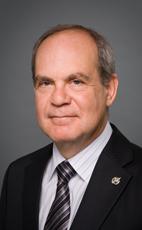Mr. Speaker, I am pleased to rise today to celebrate the 140th anniversary of Maple Ridge, my hometown.
In September 1874, a group of settlers gathered at John McIver's farm and decided to incorporate as a municipality. The stunning view of maple trees running along the ridge on the edge of the McIver farm gave this new community its name, Maple Ridge. What began as a rural community with fewer than 50 families now has a population of almost 80,000, and it is one of the fastest-growing areas in the metro Vancouver region.
There is more good news. On September 12, 140 years to the day after its incorporation, Maple Ridge became a city. I want to congratulate Mayor Ernie Daykin and his council on this important achievement.
Maple Ridge has a blend of rural charm and urban sophistication. I am proud to say that I am from the city of Maple Ridge, which I think just might be the best place to live in Canada.

